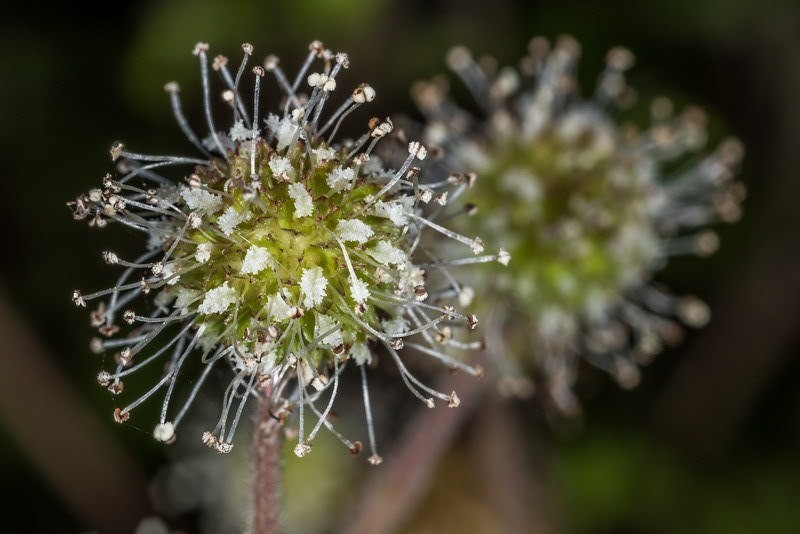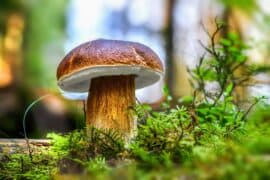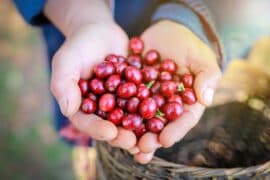Acaena juvenca
(Acaena juvenca)

Description
Acaena juvenca is a species of perennial plant found in scrubland and forest margins up to an altitude of 1200 m on the eastern side of both North and South Islands, New Zealand. This plant has slender reddish brown branches, often growing prostrately, each ending in three distinctively rounded leaflets which are green, not glaucous as in many of its congeners. This species is usually found at the margins of forests of broad-leaved trees such as Nothofagus and in scrubland dominated by Leptospermum scoparium and Kunzea ericoides. Flowering occurs from November to February with fruit being produced from January onwards. Acaena is a genus of about 60 species of mainly evergreen, creeping herbaceous perennial plants and subshrubs in the family Rosaceae, native mainly to the Southern Hemisphere, notably New Zealand, Australia and South America, but with a few species extending into the Northern Hemisphere, north to Hawaii (A. exigua) and California (A. pinnatifida). The leaves are alternate, 4-15 centimetres (1.6-5.9 in) long, and pinnate or nearly so, with 7-21 leaflets. The flowers are produced in a tight globose 1-2 centimetres (0.39-0.79 in) in diameter, with no petals. The fruit is also a dense ball of many seeds; in many (but not all) species the seeds bear a barbed arrowhead point, the seedhead forming a burr which attaches itself to animal fur or feathers for dispersal. Several Acaena species in New Zealand are known by the common name bidibid. The word is written variously bidi-bidi, biddy-biddy, biddi-biddi, biddi-bid and a number of other variations. These names are the English rendition of the original Māori name of piripiri. The plant is also called the New Zealand burr. The species Acaena microphylla has gained the Royal Horticultural Society's Award of Garden Merit. The generic name Acaena is derived from the Greek "akaina" (thorn), referring to the spiny hypanthium. Some species have been introduced accidentally to other areas, attached to sheep's wool, and have become invasive species. Acaena novae-zelandiae, one of the bidibids from New Zealand, is the most commonly encountered species in the United Kingdom, where it is often abundant on coastal sand dunes, crowding out native vegetation and creating an often painful nuisance with the barbed burrs. In California, A. pallida, A. novae-zelandiae and A. anserinifolia are considered serious weeds.
Taxonomic tree:







